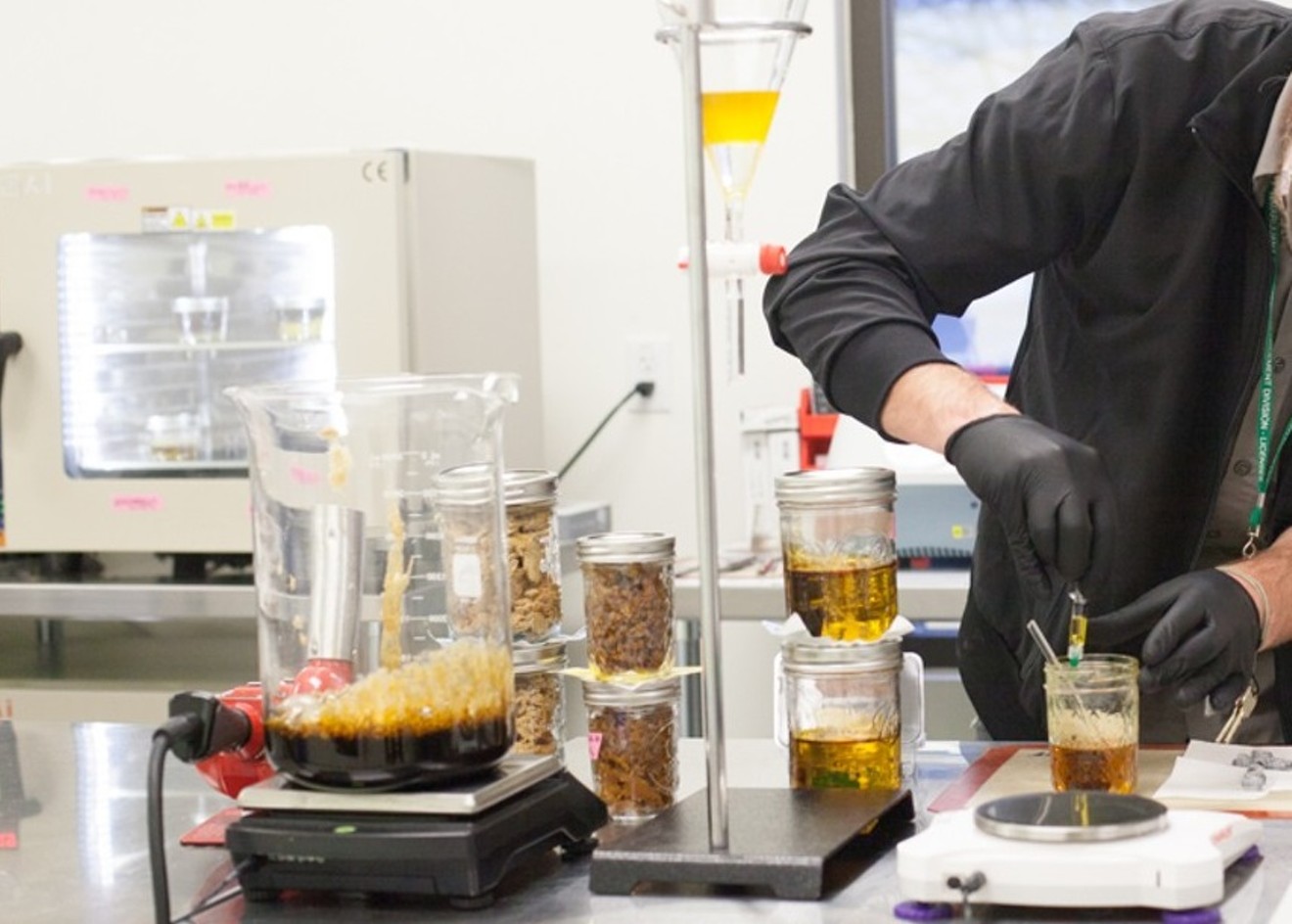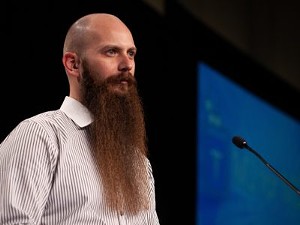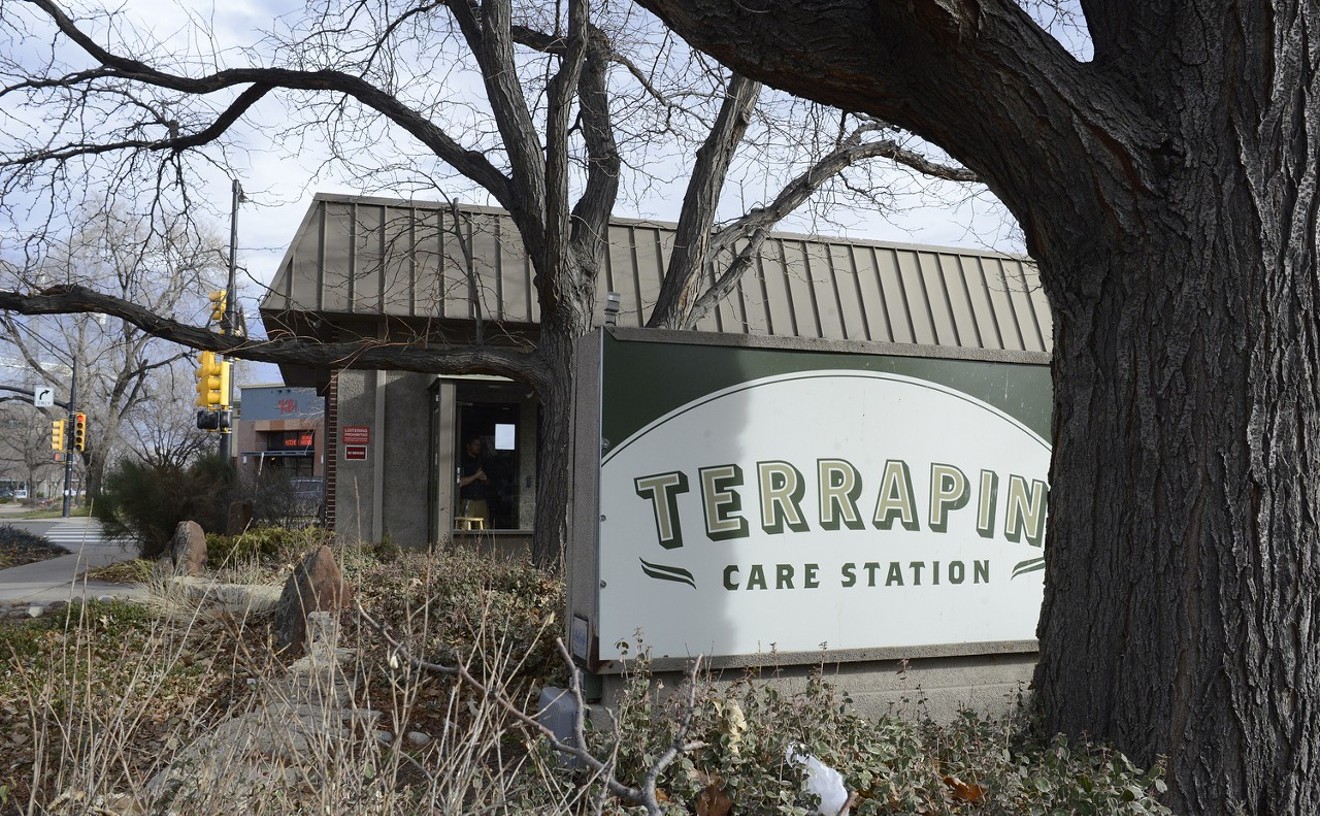Holders of the first cannabis research license in Colorado for clinical trials, Denver-based MedPharm Holdings has been leading the state in medical marijuana research by focusing on neuropharmacology and Alzheimer's disease — but without federal approval, MedPharm still struggles to gain wider acceptance in the traditional medical world.
MedPharm is currently waiting on a final verdict from the Drug Enforcement Administration for a license to grow federally approved cannabis for medical research. The company has been waiting since 2016 for a decision from the DEA, but is optimistic one will be made soon after the agency reached out with some follow-up application recommendations earlier this year.
As the stigma around cannabis lessens and the feds finally open the door on Item 9, MedPharm could take a lead in studying the plant's medicinal benefits if DEA approval comes in. To learn more about the future of medical marijuana research and regulation, we caught up with Dr. Tyrell Towle, MedPharm's director of extraction and chemistry.
Westword: What kind of research does MedPharm focus on?
Dr. Tyrell Towle: We conduct research that [includes] in vitro — in test tubes — which would be things like taking particular brain cells and inducing a state in them that is oxidative. It's a stress state that the cells can go into, which is what happens in the brain during Alzheimer’s disease. Then we can use cannabinoids to see how they rescue the cells from that state, and maybe even induce an anti-inflammatory state.
We just got research funding approved through the [Colorado State University-Pueblo] Institute of Cannabis Research to re-test products on dispensary shelves for potency in our lab in Colorado. This kind of gives a report card for the industry in terms of how close the label claim actually is to the contents of the package. Then we also look for things like, say, a capsule that has been on the shelf for eight months: How much has it degraded from when it initially passed testing? We can see those trends to see which products are more susceptible to degradation. We also have plans for clinical trials by dosing humans with our formulas to demonstrate how they can help with, for example, Alzheimer’s disease. We're focused on neurodegenerative disorders and neuropharmacology, but Alzheimer’s is our primary interest.
What's the relationship between cannabis and Alzheimer’s disease?
There's not a whole lot I can share specifically, but we do know that cannabinoids are anti-inflammatory and that they interact with cannabinoid receptors in the cells that we're interested in.
What are some of the stigmas around the medicinal benefits of cannabis?
There are a lot of them — but one is because THC, in particular, is psychoactive, people have gotten very excited about CBD, since it doesn't induce that euphoric high. But CBD also interacts with completely different receptors from THC, so it's not an exact replacement for THC. I think the stigma is that the "high feeling" is a problem, and I don't think it is, especially if it's treating a condition. If it makes you feel a little bit good as a side effect, that's a lot better than the side effects of a lot of pharmaceutical drugs. There are also options for dosing, like taking it before bedtime if you don't want to experience psychoactivity. If something is therapeutic and beneficial, it's okay for it to have a little bit of psychoactivity as a side effect.
How does the expansion of federally approved cannabis research legitimize the industry?
To go from saying without any basis that "there is no medical benefit; you can't research it" to allowing other sources to grow and provide cannabis for research is a step toward acknowledging that [cannabis] available at the federal level doesn't represent what's been available at the state level. What’s at the state level has not caused any radical damage to anybody, because we would know about that by now. So that opens up more avenues for actual medical research. Only the University of Mississippi has been able to provide cannabis for research projects at the federal level, and we all know their cannabis does not represent the same kind of cannabis you can get from the marketplace in places like here, Washington or California.
Why is the University of Mississippi not a reliable source for cannabis supply?
A few things: One is that whatever strains they have, the don't get to a very high THC content. So, for example, the joints that they call "high-THC joints" are around 8 percent THC. If you go to a dispensary in Colorado and you try to sell that, nobody will buy it. That would be considered low potency. So their high-potency options are very low compared to what is available at dispensaries. Another problem is that they only harvest every so often. I think last I heard, the last harvest was somewhere back in, like, 2014. So it just sits there, degrades, gets microbial growth…it's just not anywhere near fresh.
From a scientist perspective, what are your thoughts on regulating access to cannabis? What are misconceptions about its impact on youth by lawmakers?
Generally, once you have a fully developed brain, it's not going to cause any permanent changes. But youth have developing brains up until the age of 24, and it can impact how the brain develops. There is a correlation between people who have smoked weed from a young age and them having fewer neuronal connections to the prefrontal cortex. But that doesn't make it a bad thing; it doesn't mean that something is wrong. It's just a difference at this point.
The whole idea that concentration, specifically, makes something damaging is totally wrong; it's the dose that makes something damaging. As far as kids accessing stuff, kids are going to get ahold of whatever the heck they want to get ahold of. I don't think legislating concentration caps and things like that will work; I think that's damaging, because you're saying you can only have X amount of concentration and then the issue becomes: What are people going to use to make up for the rest of the Y concentration that needs to be filled, and what kind of health effects could that have? We have no idea, and I think that's a lot riskier. Maybe kids won't be smoking concentration, but they might be smoking a bunch of other chemical garbage.
What’s the status of your DEA approval?
We still haven’t been approved. It’s been a long process, and we’ve been waiting forever, but we’re hoping to get approved very soon and are very eager to announce it once it happens.
What are future research plans for MedPharm?
We're definitely going to continue focusing on neuropharmacology. We have a patent on a brain formulation that we believe will not only alleviate some of the symptoms of Alzheimer’s disease, but also slow its progression. That's the big future we're working toward, making sure elderly patients can use cannabinoids to help manage their Alzheimer or dementia symptoms, and maybe even to slow the progression so they can have a higher quality of life for longer.
[
{
"name": "Air - MediumRectangle - Inline Content - Mobile Display Size",
"component": "12017618",
"insertPoint": "2",
"requiredCountToDisplay": "2"
},{
"name": "Editor Picks",
"component": "17242653",
"insertPoint": "4",
"requiredCountToDisplay": "1"
},{
"name": "Inline Links",
"component": "18838239",
"insertPoint": "8th",
"startingPoint": 8,
"requiredCountToDisplay": "7",
"maxInsertions": 25
},{
"name": "Air - MediumRectangle - Combo - Inline Content",
"component": "17261320",
"insertPoint": "8th",
"startingPoint": 8,
"requiredCountToDisplay": "7",
"maxInsertions": 25
},{
"name": "Inline Links",
"component": "18838239",
"insertPoint": "8th",
"startingPoint": 12,
"requiredCountToDisplay": "11",
"maxInsertions": 25
},{
"name": "Air - Leaderboard Tower - Combo - Inline Content",
"component": "17261321",
"insertPoint": "8th",
"startingPoint": 12,
"requiredCountToDisplay": "11",
"maxInsertions": 25
}
]













